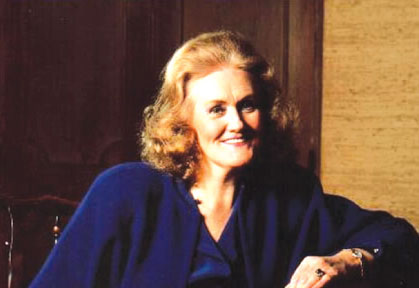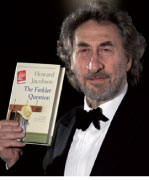 La Stupenda: passing of dame Joan Sutherland La Stupenda: passing of dame Joan Sutherland
By Dr. Binoy KAMPMARK
 |
|
Dame Joan Sutherland |
Australia’s much respected soprano, Dame Joan Sutherland, is dead at
the age of 83. From 1960 when she made her Italian debut singing in
Handel’s Alcina at La Fenice in Venice, she became known as ‘La Stupenda’,
cast in shining armour as the saviour of Italian bel canto. While doing
secretarial and tailoring courses, she studied singing at the Sydney
Conservatorium under the watchful eye of her mother, herself an amateur
singer. In 1947, Sutherland made her operative debut before a Sydney
audience in Purcell’s Dido, playing the key role of Dido. She then
started building up her operatic cache, getting funding to study at
London’s Royal College of Music, then joining the Royal Opera House in
1952. That year, the illness of a Humburg State Opera soprano gave her
an opportune moment. Amelia’s role in Verdi’s Un Ballo in Maschera was
available and seized with relish.
Being a musical talent on a cultural periphery might well have been a
bar to Sutherland, but it never seemed to concern her, given a household
that was not averse to operatic records. In various interviews and
performances, she seemed to lack that fire and brimstone disposition of
the standard diva, proving to be generally even tempered and even, god
forbid, well liked. What proved a source of constant concern were her
attacks of ill-Dame Joan Sutherland, health that were to plague her
through her career.
Her voice itself moderated over time as she began shedding the
mezzo-soprano influence of her mother Muriel, creating a purity that
thrilled audiences in the 1950s. Due to the persuasion of her lifetime
manager, coach and partner Richard Bonynge, she moved from the weighty
world of robust Wagnerian exhibitionism to the bel canto genre,
something which her Italian patrons at Milan’s La Scala opera house have
been ever grateful for. During the 1960s, she would make their stage her
operatic home. ‘This is how La Scala remembers Joan Sutherland: not just
a master virtuoso, but an obligatory example for all those who have sung
Rossini, Bellini, and Donizetti after her’ (France 24, Oct 11). Even La
Scala did not shy away from claiming Sutherland to be something of a
saviour of Italian bel canto, thereby providing ‘the impulse of a
re-discovery of forgotten or underestimated titles and above all the
force of a new stylistic consciousness’.
Such a move did not go unnoticed: bel canto roles tend to be
associated with heroines of lithe and delicate disposition. ‘One of
God’s pranks,’ noted Dame Edith Evans, ‘was to make Joan an overgrown
schoolgirl and then give her a divine voice’ (Guardian, Oct 11).
Sutherland, while possessing an astonishing voice of angelic powers,
had a rather different physical stature, though it did not deter the
likes of Franco Zeffirelli, who thankfully pushed her in the direction
of Donizetti’s Lucia Di Lammermoor even if he did feel she resembled ‘a
sergeant in the army with a terrible Australian accent’.
From February 17 1959, when she performed the signature role of the
mad Lucia before an enthralled Covent Garden audience, her fame was
assured.
It is far from easy being a cultural star in a country where sporting
pursuits take precedence over cerebral achievement. Matter over mind is
a fundamental law ‘down under.’ In his last comedy sketches done in
1968, the British comedian Tony Hancock, playing a ’10 pound’ British
immigrant seeking a better world in Australia finds in utter disgust
that he is in a country where eight year olds are taught how to swim in
superlative fashion. (‘I hadn’t even had my first bath then,’ claims a
rueful Hancock.)
Every channel suffocates under the monotony of the sporting voice,
and rival cultural codes struggle to get a look-in. Hancock dreams of
bringing the left-bank Parisian culture to Australia. Sutherland, in
contrast, would leave the banks.
The accolades for Sutherland were many. She became something of a
magnet for awards, amongst them being appointed a Dame in the 1979 New
Year’s Honours list.
The late tenor Luciano Pavarotti, who sang along with her at stages,
was not reserved when he claimed her as having ‘the voice of the
century’. But it will be her passing that will remind opera goers and
listeners that a generation of sopranos – where fusion between art and
life was the order of the day – is now well and truly gone.
Binoy Kampmark was a Commonwealth Scholar at Selwyn College,
Cambridge. He lectures at RMIT University, Melbourne. Email:
[email protected]
|
World
news on literature
Man Booker Prize throws up surprise winner
 LONDON: British writer and journalist Howard Jacobson’s novel The
Finkler Question, a semi-autobiographical comic take on Jewish identity,
is the surprise winner of this year’s Man Booker Prize. LONDON: British writer and journalist Howard Jacobson’s novel The
Finkler Question, a semi-autobiographical comic take on Jewish identity,
is the surprise winner of this year’s Man Booker Prize.
It was not the unanimous choice of the jury and, in the end, two of
the five judges voted against it.
Manchester-born Mr. Jacobson, who lives in London, beat two of the
bookies’ favourites — Tom McCarthy’s C and Emma Donoghue’s Room — to win
the £50,000 prize. |
|

